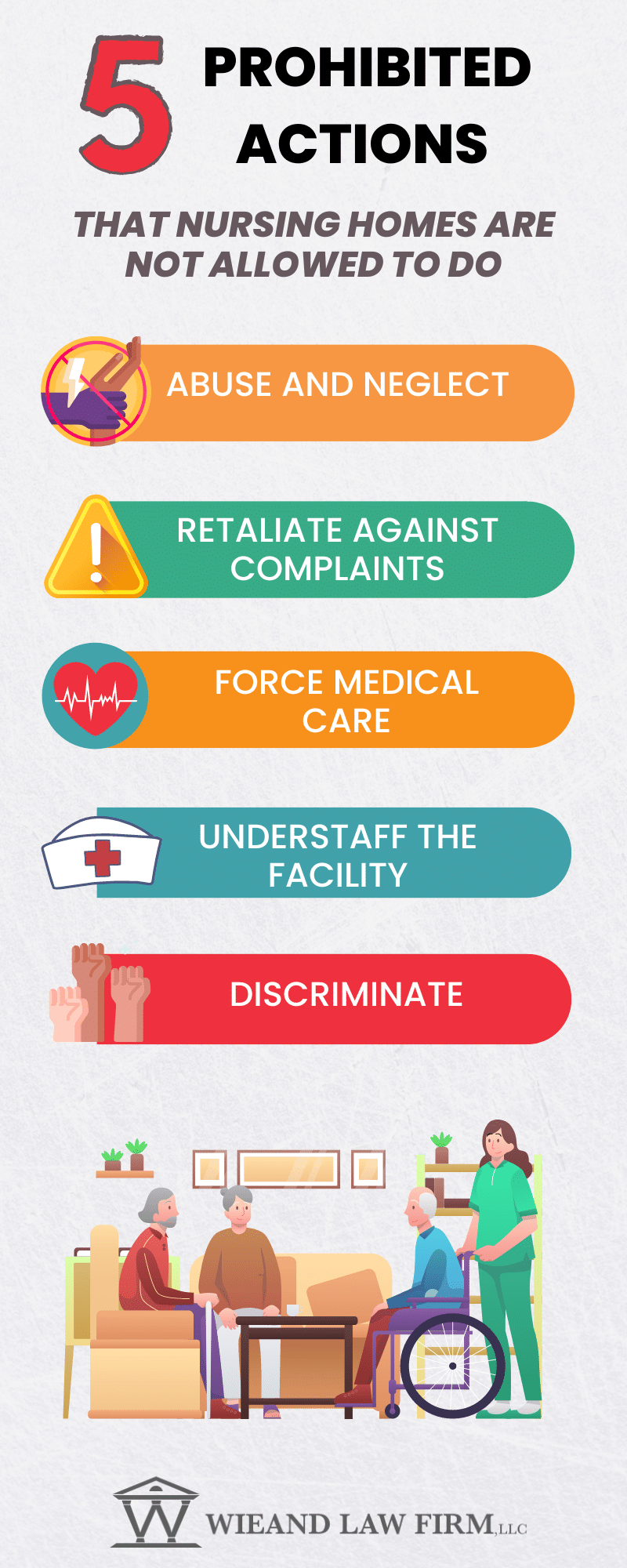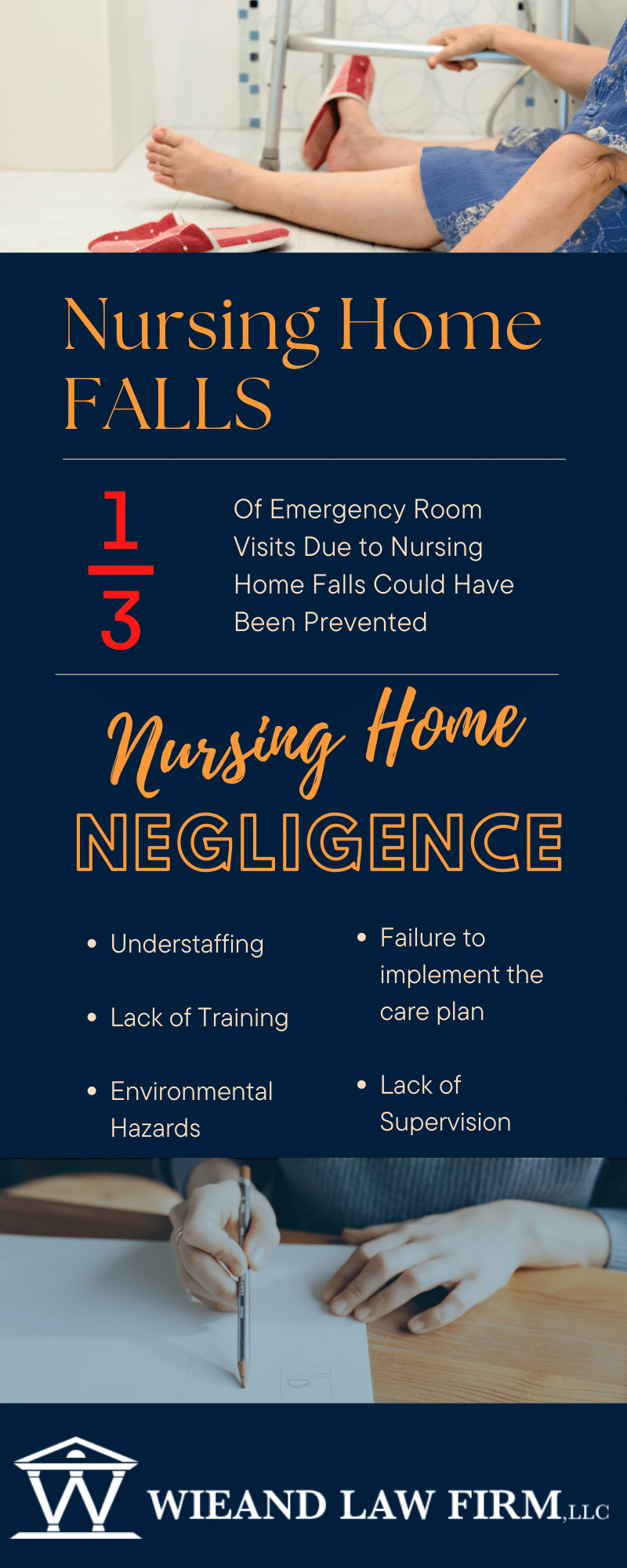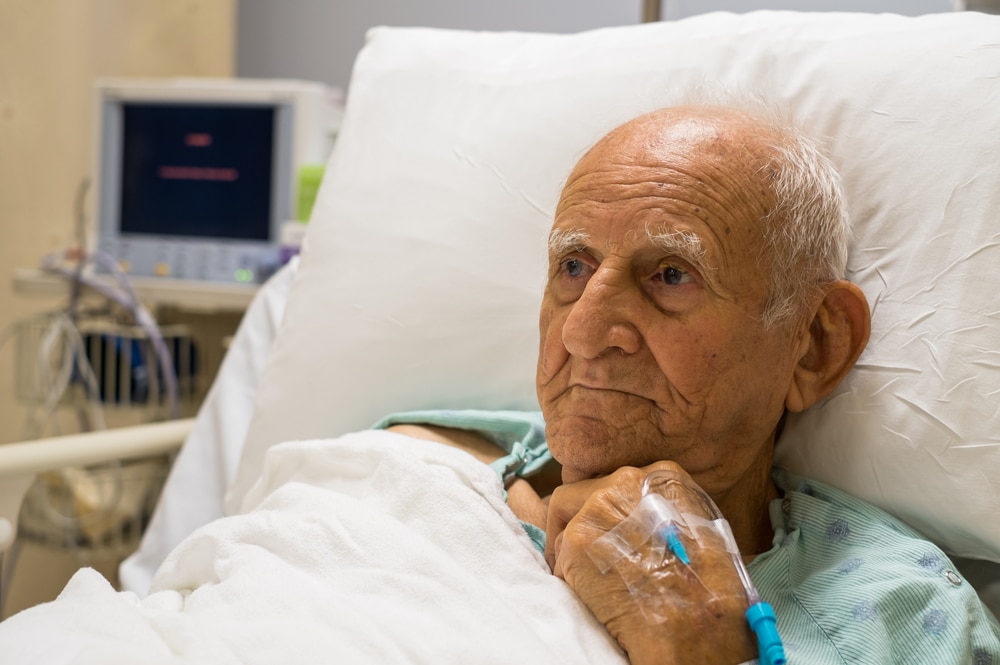 Nursing homes are subject to regulation by both state and federal agencies to ensure the safety and well-being of their residents. These regulations are in place to set standards of care, establish protocols, and enforce compliance with guidelines designed to protect the rights and dignity of residents. A Philadelphia nursing home lawyer at the Wieand Law Firm, Brent Wieand, frequently receives phone calls from family members of residents who are concerned about things nursing homes are not allowed to do according to regulations, such as resident abuse or neglect.
Nursing homes are subject to regulation by both state and federal agencies to ensure the safety and well-being of their residents. These regulations are in place to set standards of care, establish protocols, and enforce compliance with guidelines designed to protect the rights and dignity of residents. A Philadelphia nursing home lawyer at the Wieand Law Firm, Brent Wieand, frequently receives phone calls from family members of residents who are concerned about things nursing homes are not allowed to do according to regulations, such as resident abuse or neglect.
In situations where a resident has been injured or harmed by a nursing home’s failure to abide by regulations, they may be eligible to file a claim. Injuries that may result in a nursing home negligence claim include injury from pressure ulcers, brain bleeds or fractures from preventable falls, and death from infections. A Philadelphia nursing home lawyer can help eligible families seek compensation for injuries that occur from things nursing homes are not to do.
At the state level, departments of health or social services are responsible for licensing and monitoring nursing homes within their jurisdictions. They conduct regular inspections to assess compliance with regulations and investigate complaints or reports of abuse or neglect. State agencies also play a crucial role in establishing and enforcing specific standards related to staffing levels, resident rights, medication administration, infection control, and other critical aspects of care. These regulations ensure that nursing homes provide a safe and secure environment that promotes the well-being and quality of life for their residents.
On the federal level, the Centers for Medicare and Medicaid Services (CMS) oversees nursing homes participating in the Medicare and Medicaid programs. CMS sets forth regulations through the Code of Federal Regulations (CFR), which establish requirements that nursing homes must meet to be eligible for reimbursement under these programs. These regulations cover various aspects of care, including resident assessments, care planning, staff training, and quality assurance. CMS conducts surveys and inspections to assess compliance with federal regulations and imposes sanctions or penalties for non-compliance. By working in conjunction with state agencies, the federal government plays a crucial role in ensuring the safety and well-being of nursing home residents nationwide.
State and Federal regulations clearly outline specific things nursing homes are not allowed to do. Regulations prohibit nursing homes from acting in ways that expose residents to unnecessary risk of injury or harm. If a resident is seriously injured as a result of things a nursing home is not allowed to do, a Philadelphia nursing home lawyer may be able to file a personal injury claim against the facility.
Below are five things nursing homes are not allowed to do:
Nursing homes play a crucial role in providing care and support to elderly and vulnerable individuals who require assistance with daily living activities. Recognizing the importance of safeguarding the well-being and dignity of residents, regulations have been put in place to prohibit the abuse and neglect of individuals residing in nursing homes. These regulations aim to ensure that residents receive appropriate care, maintain their rights, and are protected from any form of mistreatment.
One fundamental regulation is the prohibition of physical, emotional, sexual, and financial abuse. Nursing homes are required to create a safe environment where residents are free from harm, coercion, or any form of exploitation. This includes preventing physical violence, restraining residents excessively, engaging in verbal abuse, or any other behavior that could cause distress or harm. Additionally, nursing homes are mandated to protect residents from financial exploitation, such as theft or misuse of their personal funds or possessions.
Neglect is another area covered by regulations. Nursing homes must provide residents with the necessary care, attention, and support to meet their physical, emotional, and social needs. Neglect refers to the failure to provide adequate food, shelter, medical care, personal hygiene assistance, or social interaction. Regulations emphasize the importance of ensuring that residents receive timely and appropriate healthcare, medication management, nutrition, and hygiene support. When facilities fail to abide by these regulations, a Philadelphia nursing home lawyer can take action by filing a nursing home negligence lawsuit against the facility.
To enforce these regulations, governing bodies conduct regular inspections and investigations of nursing homes. These inspections assess compliance with standards of care, resident safety, staffing ratios, and the implementation of policies and procedures. Abuse and neglect of residents is one of the chief things nursing homes aren’t allowed to do, and nursing homes who violate this rule may face penalties, fines, or potential closure if the abuse or neglect is severe or widespread.
The regulations surrounding nursing home abuse and neglect aim to create a culture of accountability and person-centered care within these facilities. They seek to protect the rights and dignity of residents, promote their well-being, and provide a framework for monitoring and intervention when necessary. By upholding these regulations, society ensures that nursing homes provide a safe and caring environment for their residents, fostering trust and peace of mind for both residents and their families.
 Retaliate Against Complaints
Retaliate Against ComplaintsTo maintain a safe and transparent environment within nursing homes, regulations explicitly prohibit any form of retaliation against residents or their families who voice complaints or concerns. These regulations recognize the importance of fostering open communication and addressing grievances without fear of repercussions. Residents and their families have the right to express their concerns regarding care, treatment, or any other aspect of their experience within the nursing home.
Nursing homes are required to establish and implement procedures for addressing complaints and grievances in a fair and timely manner. This includes providing residents and their families with information on how to voice complaints, ensuring accessibility to complaint forms, and designating staff members who are responsible for handling and investigating complaints. Moreover, nursing homes must maintain confidentiality and protect the identity of individuals who report complaints, respecting their privacy and preventing any potential retaliation.
Things nursing homes are not allowed to do include retaliating in ways such as verbal or emotional abuse, neglect, discrimination, or isolating residents from social activities or services. These actions are strictly prohibited, and nursing homes found to engage in retaliatory behavior can face severe consequences, including legal repercussions, loss of licensure, and financial penalties. By explicitly prohibiting retaliation, regulations aim to empower residents and their families to advocate for their rights and contribute to a culture of continuous improvement in the quality of care provided within nursing homes.
Furthermore, regulations encourage nursing homes to establish mechanisms for resolving complaints through alternative dispute resolution processes or external agencies. These avenues provide an impartial platform for addressing concerns and ensure that grievances are thoroughly investigated and resolved. This approach promotes transparency and accountability, fostering an environment where residents and their families feel comfortable expressing their concerns and actively participating in improving the quality of care within nursing homes.
If you believe a nursing home has retaliated against you as a result of a care complaint, contact a Philadelphia nursing home lawyer at the Wieand Law Firm to learn about your legal rights and options.
 Force Medical Care or Treatment
Force Medical Care or TreatmentNursing homes are bound by regulations that prohibit them from forcing medical care or treatment on their residents. These regulations recognize the importance of resident autonomy, individual preferences, and informed decision-making regarding healthcare. Residents have the right to participate in the development of their treatment plans, and their choices and preferences should be respected.
Things nursing homes are not allowed to do include forcing residents to take certain medications. Nursing homes must adhere to strict guidelines to ensure the appropriate use and administration of drugs. The administration of medications, including psychotropic drugs, should be based on informed consent and medical necessity.
Nursing homes are required to obtain proper consent from residents or their legal representatives before initiating any medication regimen. Residents have the right to be fully informed about the purpose, potential benefits, and risks of the medications prescribed to them. They should also be involved in discussions about alternative treatment options and can refuse medications. Psychotropic medications should never be used for the convenience of nursing home staff.
To promote resident involvement in their treatment plans, nursing homes should facilitate open and ongoing communication between residents, their families, and healthcare professionals. This allows residents to express their preferences, concerns, and goals related to their healthcare. Nursing homes are encouraged to develop individualized care plans that consider the unique needs and preferences of each resident. The involvement of residents in decision-making processes fosters a sense of empowerment, dignity, and control over their own healthcare, ultimately leading to better outcomes and quality of life.
It is important to note that there are situations where the mental capacity of a resident may be compromised, making it difficult for them to fully participate in their treatment decisions. In such cases, nursing homes should follow legal protocols, including the involvement of legal representatives or court appointed advocates, to ensure that the resident’s best interests are upheld.
A Philadelphia nursing home lawyer can help families who believe their loved one’s rights and preferences are not being respected. Many facilities attempt to provide residents with psychotropic medication to sedate them to compensate for understaffing. No resident should be forced to take psychotropic medication against their will and for the convenience of nursing home staff.
Nursing homes are subject to regulations that prohibit them from understaffing their facilities. These regulations recognize the critical importance of having an adequate number of qualified staff members to ensure the well-being, safety, and quality of care for residents. Sufficient staffing levels are essential for meeting the individual needs of residents, providing timely assistance, and maintaining a safe and healthy environment within the nursing home.
Many states have regulations that establish guidelines for staffing ratios, which outline the minimum number of staff members required based on the size of the facility and the needs of the residents. These ratios often specify the number of nursing staff, including registered nurses (RNs), licensed practical nurses (LPNs), and certified nursing assistants (CNAs), in relation to the number of residents. Currently, there is no national staffing requirement for nursing homes, although the Centers for Medicare and Medicaid Services (CMS) has hinted at requirement in the near future.
Understaffing can lead to numerous negative consequences, such as inadequate supervision, delays in response to emergencies, compromised infection control, and an overall decrease in the quality of care. Insufficient staffing may result in residents not receiving necessary assistance with activities of daily living, medication administration, or appropriate medical attention. Moreover, understaffing can contribute to staff burnout, increased workload, and decreased job satisfaction, which ultimately impact the well-being and morale of both staff and residents.
Regulatory bodies conduct routine inspections and assessments to ensure nursing homes comply with staffing requirements. They may review staffing records, schedules, and resident-to-staff ratios to determine if the facility is adequately staffed. Understaffing, like other things nursing homes are not allowed to do, may result in penalties, fines, or other disciplinary actions, including potential suspension or revocation of their operating licenses for the nursing home.
Filing a nursing home lawsuit can be a crucial step towards obtaining justice for families who have experienced nursing home neglect from understaffing. It provides an opportunity to hold the responsible parties accountable for their actions or lack thereof, and to seek compensation for the harm and suffering caused to the resident. A Philadelphia nursing home lawyer can help shed light on the neglectful conditions, ensuring that the nursing home is held responsible and taking steps to prevent similar incidents in the future. Additionally, a successful lawsuit can provide families with the financial resources necessary to cover medical expenses, rehabilitation costs, and other damages resulting from the neglect, offering some measure of relief and closure. Top of Form
 Discriminate Against Potential Residents
Discriminate Against Potential ResidentsNursing homes are strictly prohibited from engaging in discrimination against potential residents. These regulations are in place to ensure equal access to care and protect individuals from unfair treatment based on factors such as race, color, religion, national origin, gender, age, disability, or any other protected characteristic. Discrimination not only undermines the rights and dignity of individuals but also goes against the principles of fairness and equality.
To prevent discrimination, nursing homes are required to establish admission policies that are fair, transparent, and non-discriminatory. They must treat all potential residents equally and evaluate their eligibility for admission based on objective criteria related to the individual’s healthcare needs, safety considerations, and the nursing home’s ability to meet those needs. Any restrictions or requirements imposed during the admission process must be justified by legitimate factors related to the provision of appropriate care and the safety of residents.
Furthermore, nursing homes are expected to provide reasonable accommodations and modifications to ensure that individuals with disabilities have equal opportunities to access and benefit from their services. This may include making necessary physical modifications to the facility or providing auxiliary aids and services to individuals with sensory impairments.
Regulations also protect individuals from discriminatory practices during their stay in nursing homes. Residents have the right to receive care and services without regard to any discriminatory factors. Nursing homes must ensure that their policies, practices, and treatment of residents are consistent and free from any form of discrimination.
If discrimination is suspected or reported, nursing homes are subject to investigation and potential legal consequences. Regulatory bodies and legal systems play a crucial role in enforcing these regulations and holding nursing homes accountable for discriminatory practices and other things nursing homes are not allowed to do. A Philadelphia nursing home lawyer may also be able to help families by filing a civil lawsuit against the facility.
By upholding non-discrimination regulations, nursing homes promote inclusivity, equal access to care, and the protection of individual rights. These regulations help to foster a supportive and respectful environment where all individuals, regardless of their personal characteristics, can receive the care and services they need with dignity and without fear of discrimination.
 Contact the Wieand Law Firm Today
Contact the Wieand Law Firm TodayIf your loved one has been injured by neglect or abuse, or one of the other things nursing homes are not allowed to do, it’s crucial to seek justice and hold those responsible liable. In such difficult times, the Wieand Law Firm is here to provide the legal support and guidance you need. With their commitment to advocating for the rights of nursing home abuse victims, contacting the Wieand Law Firm could be a vital step towards securing compensation and ensuring your loved one’s well-being.
The Wieand Law Firm, led by experienced personal injury attorney Brent Wieand, has years of experience litigating nursing home abuse and neglect cases. Their team of compassionate attorneys understands the devastating impact that poor care can have on the physical, emotional, and financial well-being of your loved one.
One of the reasons to choose the Wieand Law Firm is their dedication to personal attention and tailored representation. They recognize that each case is unique and requires a comprehensive approach. Their attorneys will take the time to listen to your concerns, gather evidence, and build a strong legal strategy to pursue maximum compensation for your loved one’s injuries and suffering.
The Wieand Law Firm has a proven track record of success in handling nursing home abuse cases. With their extensive experience and knowledge of the laws surrounding elder abuse and neglect, they will fight tirelessly to ensure that your loved one’s rights are protected and that justice is served. Remember, time is of the essence in these cases, so don’t hesitate to reach out to the Wieand Law Firm to discuss your legal options and begin the process of seeking justice for your loved one.
Call 215-666-7777 to speak directly with a Philadelphia nursing home lawyer today.